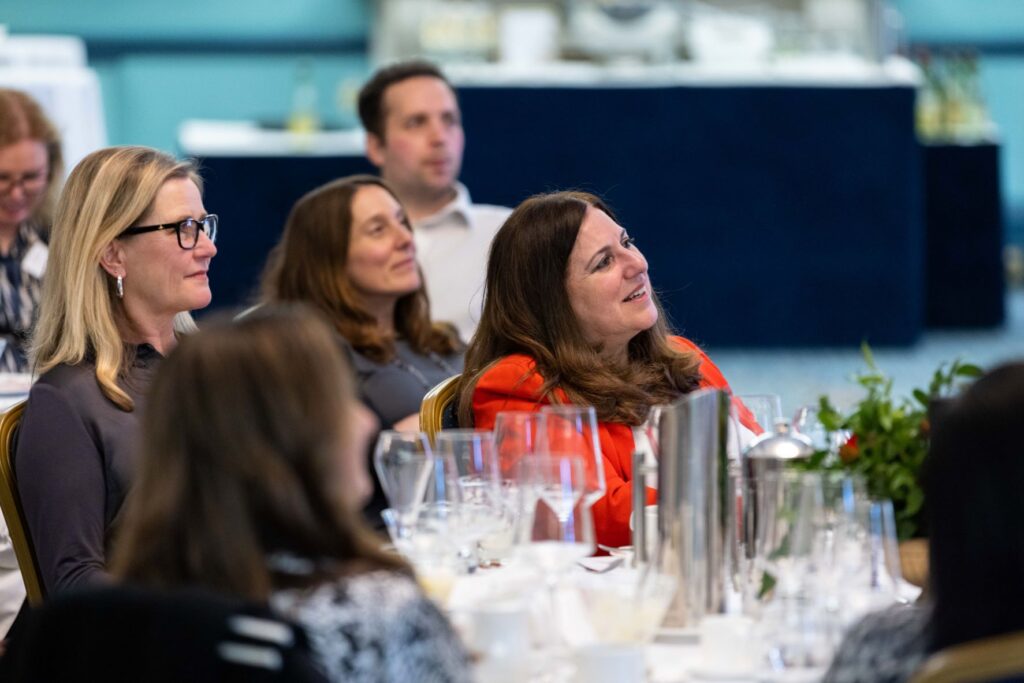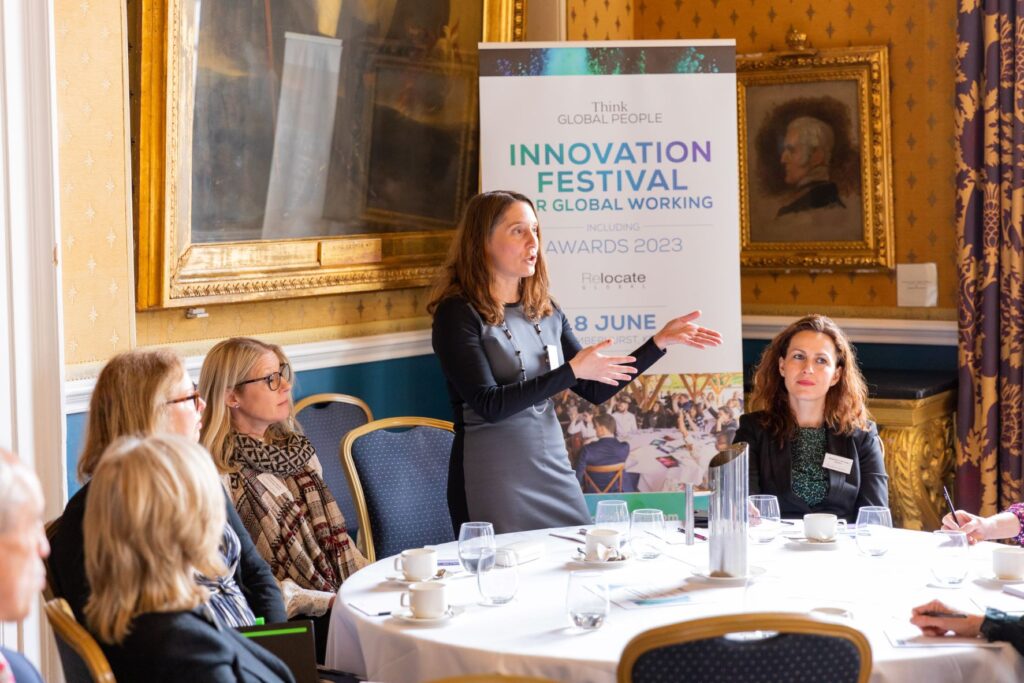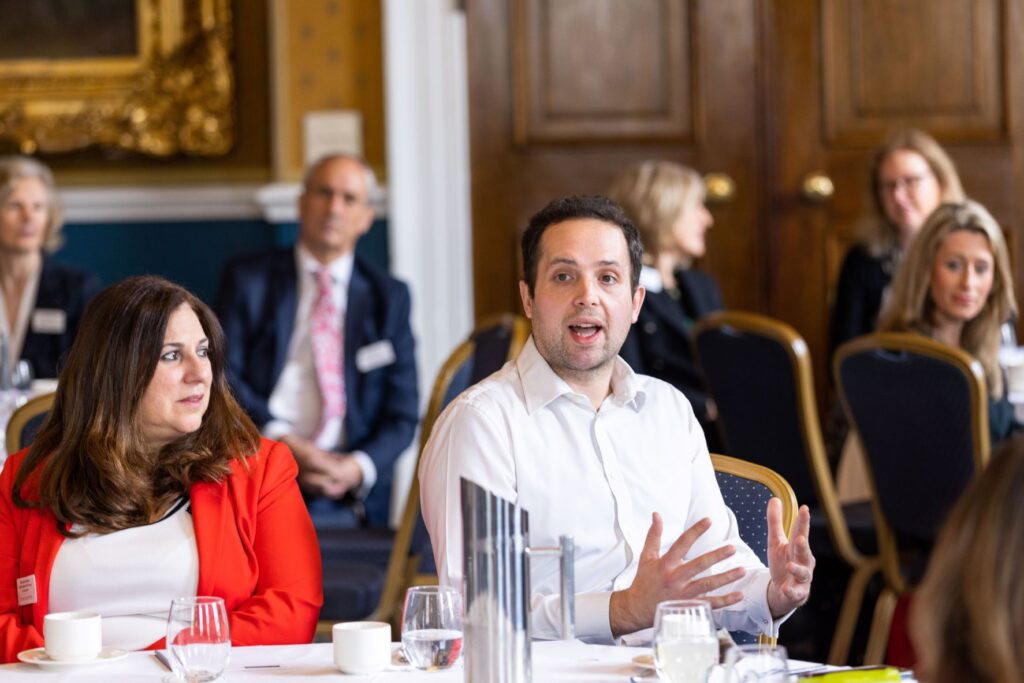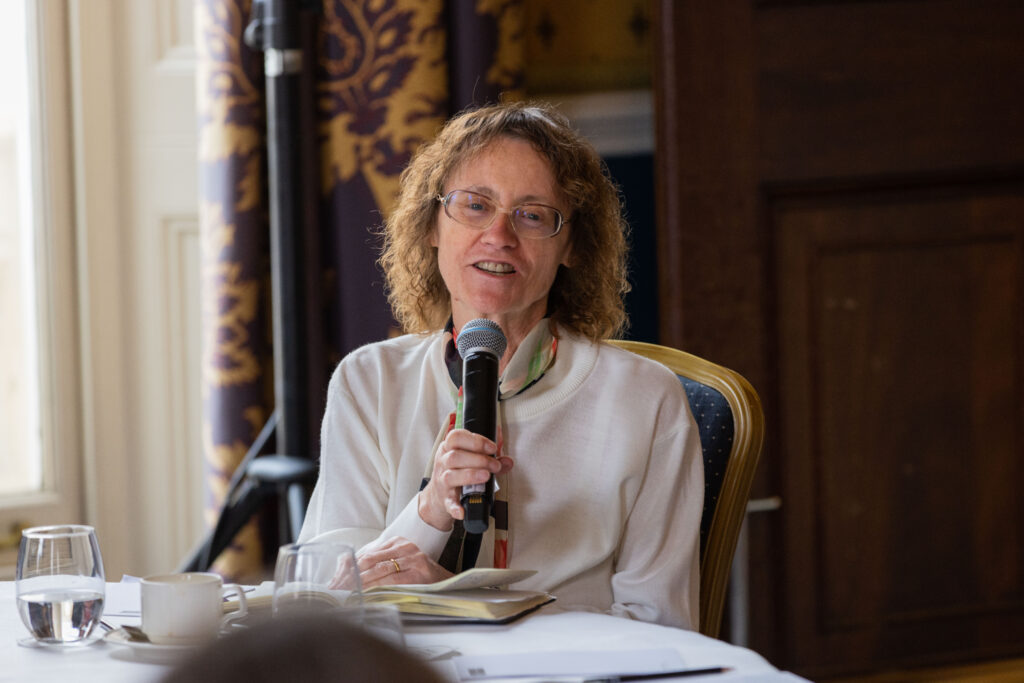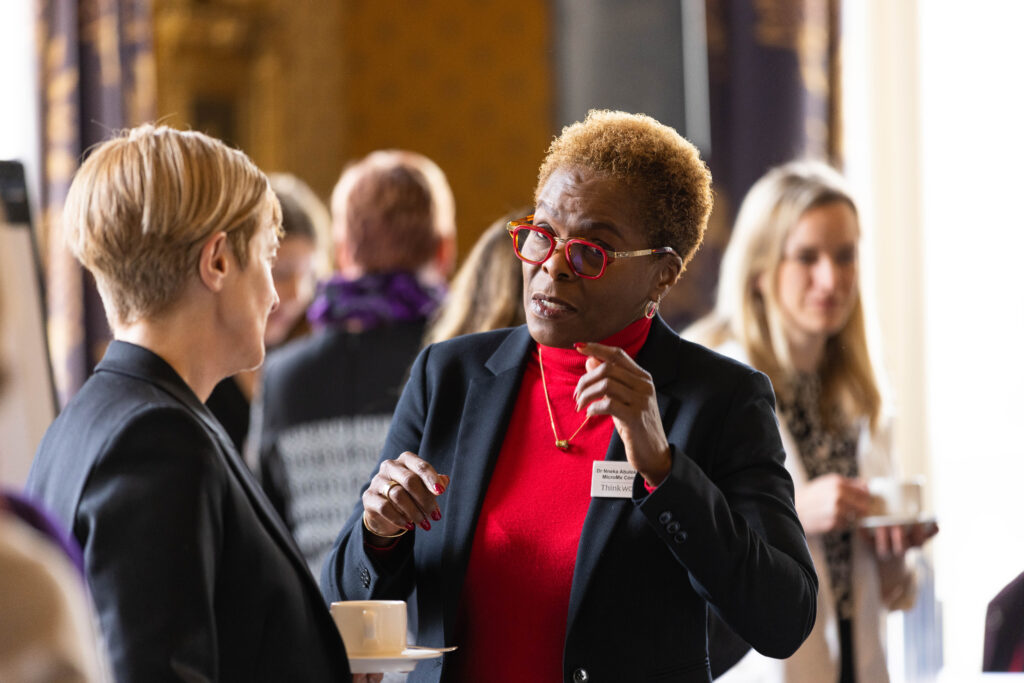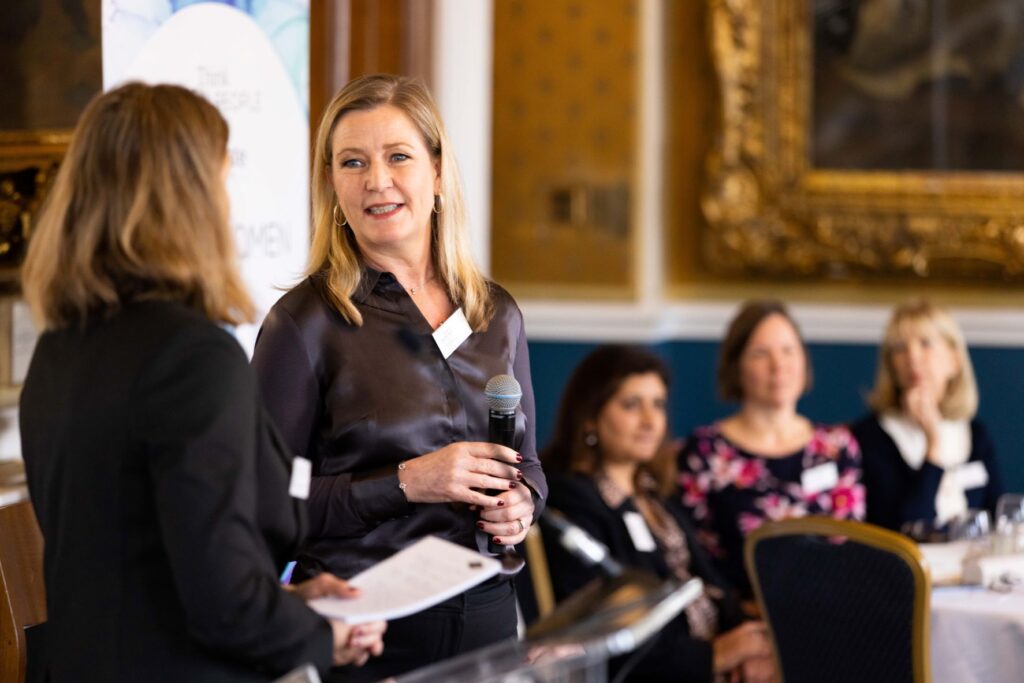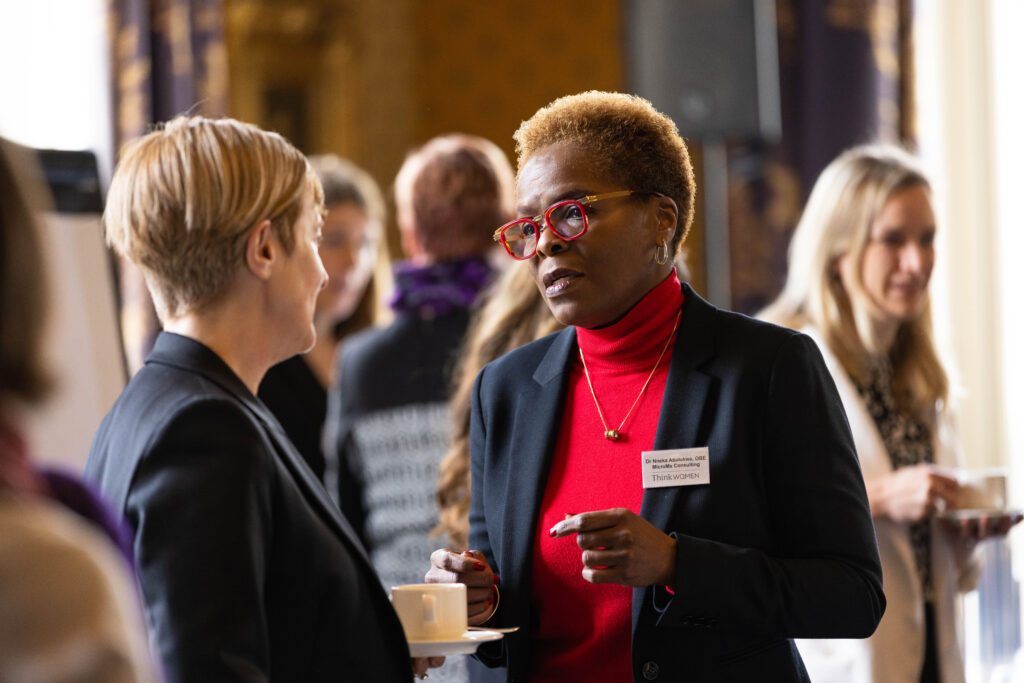Key takeaways from the Think Women celebration of International Women’s Day
Finding opportunities to connect with other women, sharing experiences and knowlege, taking risks and being bold, and encouraging diversity were the key takeaways from the hugely inspiring Think Women event held to celebrate International Women’s Day.
In this article Marianne Curphey examines these four key topics, which women can prioritise in order to puruse their career goals.
Overall, the speakers and guests pinpointed five key areas which women could prioritise in order to break the glass ceiling and fulfil their potential:
- Visibility and networking skills
- The personal and career benefits of international assignments
- The importance of finding or creating your own support network and being inspired by other women leaders
- Encouraging diversity of thought, staffing and mindset
- Finding opportunities to work on self-development, and securing a sponsor or a mentor to help you grow in confidence
Visibility and networking skills
Anino Emuwa, the keynote speaker, a former banker and founder of 100 Women @Davos and Avandis Consulting, said women needed to be more visible and get the attention of influencers and decision-makers.
“Being part of a community and for the community to decide how to interact and engage around its purpose, which we as women are very good at, we have this ability to create impact,” she said. “Then we start to get visibility and attention.”
She sounded a positive note, saying opportunities for women were increasing, and there were practical steps that women could take to access these opportunities.
“Very often we think that opportunities are out there but how can we access them?” she said. She stressed the importance of communities like Think Global People and Think Women which are an important networking and support opportunity for women.
The importance of finding or creating your own support network and being inspired by other women leaders
“A lot of information, support and opportunities for collaboration passes through communities,” said Dr Emuwa. “These communities are important because as you move higher up the ladder your networks need to increase so you have more resources to help you to progress.
“There are very few women in senior positions anyway, so these communities are supportive,” she said, highlighting the fact that women’s careers often have a very different trajectory to men’s. She explained that there is more to managing a career than hard work, because you also need sponsorship, and you need visibility and the attention of people who are making the influential decisions.
Dr Sue Shortland, Senior Lecturer in HRM at the University of Westminster, said research has shown that networks are particularly important to women and minorities, such as the LGBT community, especially in the arena of international assignments.
Dr Nneka Abulokwe, Founder, MicroMax Consulting, said it was very important to have women’s groups that provide support and encouragement to women.
“I’ve met a lot of incredible women today,” she said, “Women from different walks of life and we have talked about relocation, global business and the importance of global business in today’s world, and how that can add value to each organisation.”
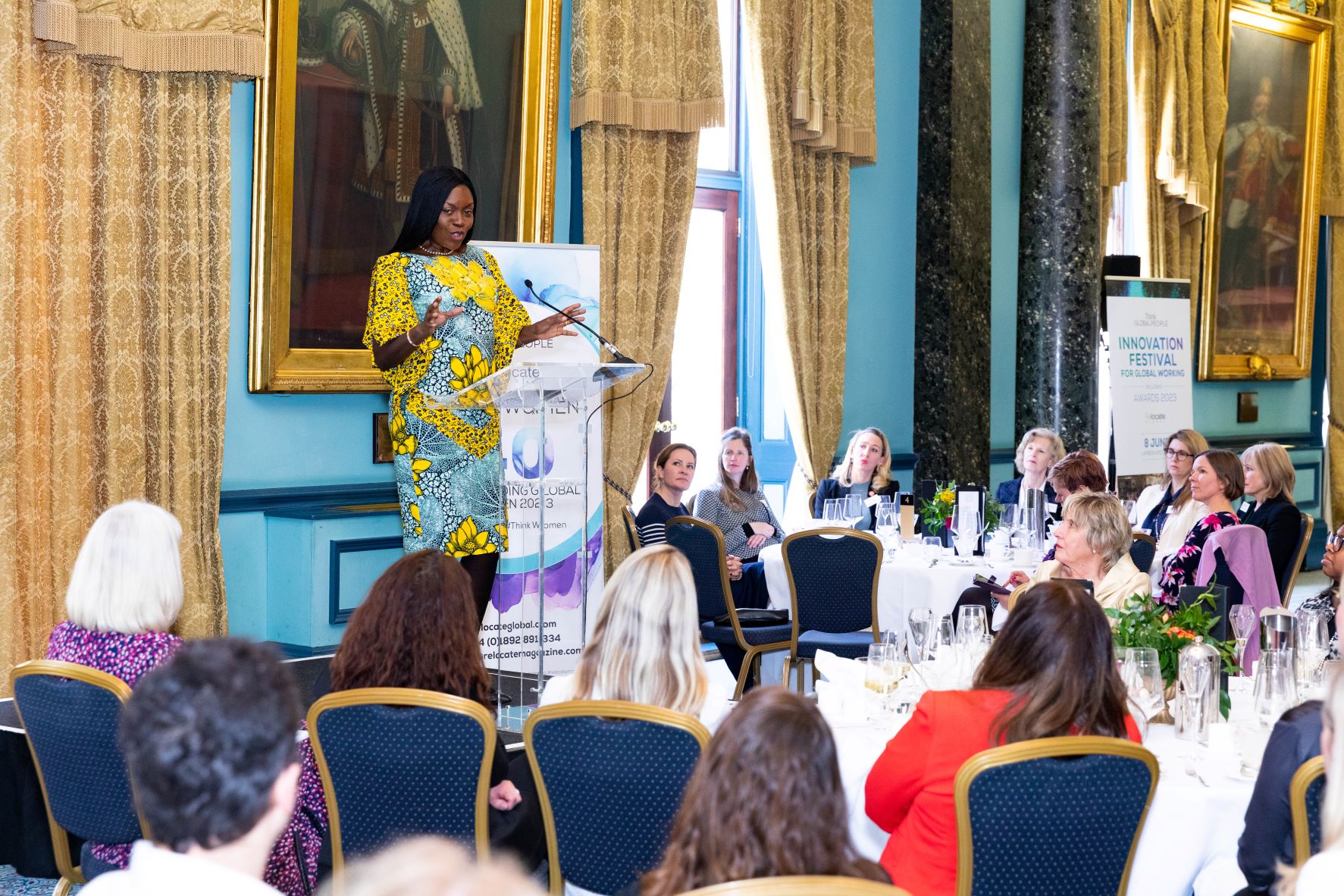
The personal and career benefits of international assignments
A clear message that came out of the day was that international assignments provided the opportunity for professional and personal growth and foster a greater tolerance and wider cultural understanding.
“If we agree that an international assignment can help encourage and develop somebody’s career, then we need to look at how many women are actually taking those assignments as well as men so that they can also develop their careers and reach those leadership positions”, said Caroline Thorley-Farrer, Group Global Mobility Director at Worley. “This might lead to a reassessment of how to structure international assignments, especially those to hardship locations which have a narrow appeal”, she said.
“It’s really important that we focus on the number of women that are going into these assignment positions or taking permanent transfers,” she said.
Fiona Murchie emphasised the importance of people telling their stories, to provide insights and inspiration to other women.
“It is really important to showcase what women are doing in the international context,” she said. “That is what we are about, with Think Global People. A strong network and exchange of views can be an incredibly supportive foundation to help encourage people to move forward. The more you hear about the achievements of other women, the more we can start to achieve equity in the workplace and on international assignments.”.
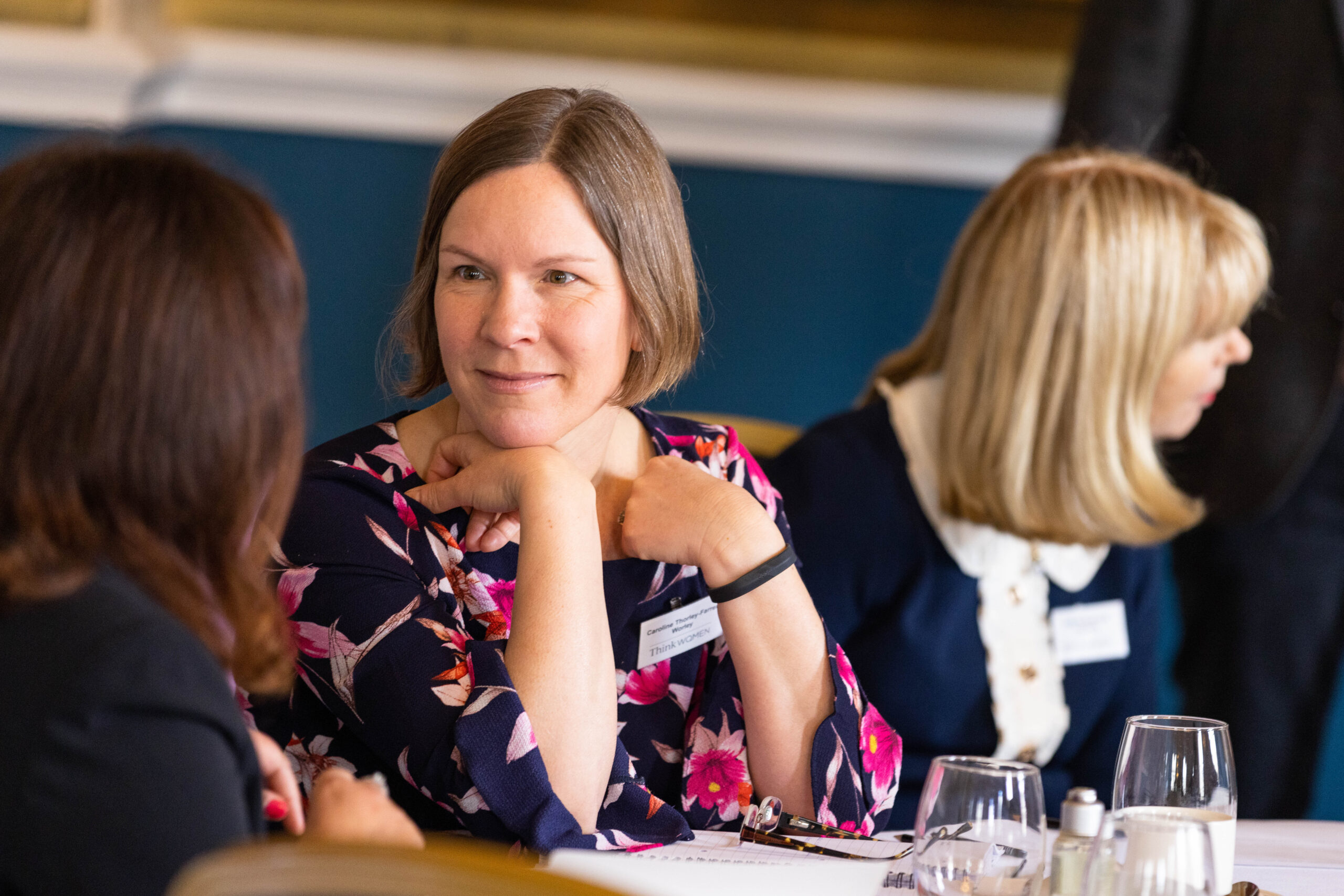
“If we agree that an international assignment can help encourage and develop somebody’s career, then we need to look at how many women are actually taking those assignments as well as men so that they can also develop their careers and reach those leadership positions”
— Caroline Thorley-Farrer, Group Global Mobility Director, Worley
Encouraging diversity of thought, staffing and mindset
A key theme of the day was about nurturing talent wherever in the organisation it might be, and to exchange views on why diversity can enrich a business.
Jenny Hinde, director of The Clear Company, said when you bring people together and start having conversations, ideas and innovation start to happen.
“Today I’ve learned personal stories of people who really stepped into a risky situation and made a huge success of it that are really inspiring and motivating,” she said. “Today highlights the importance of coming together and sharing different perspectives and different experiences. This is incredibly powerful in terms of helping to move the dial for equality and diversity.”
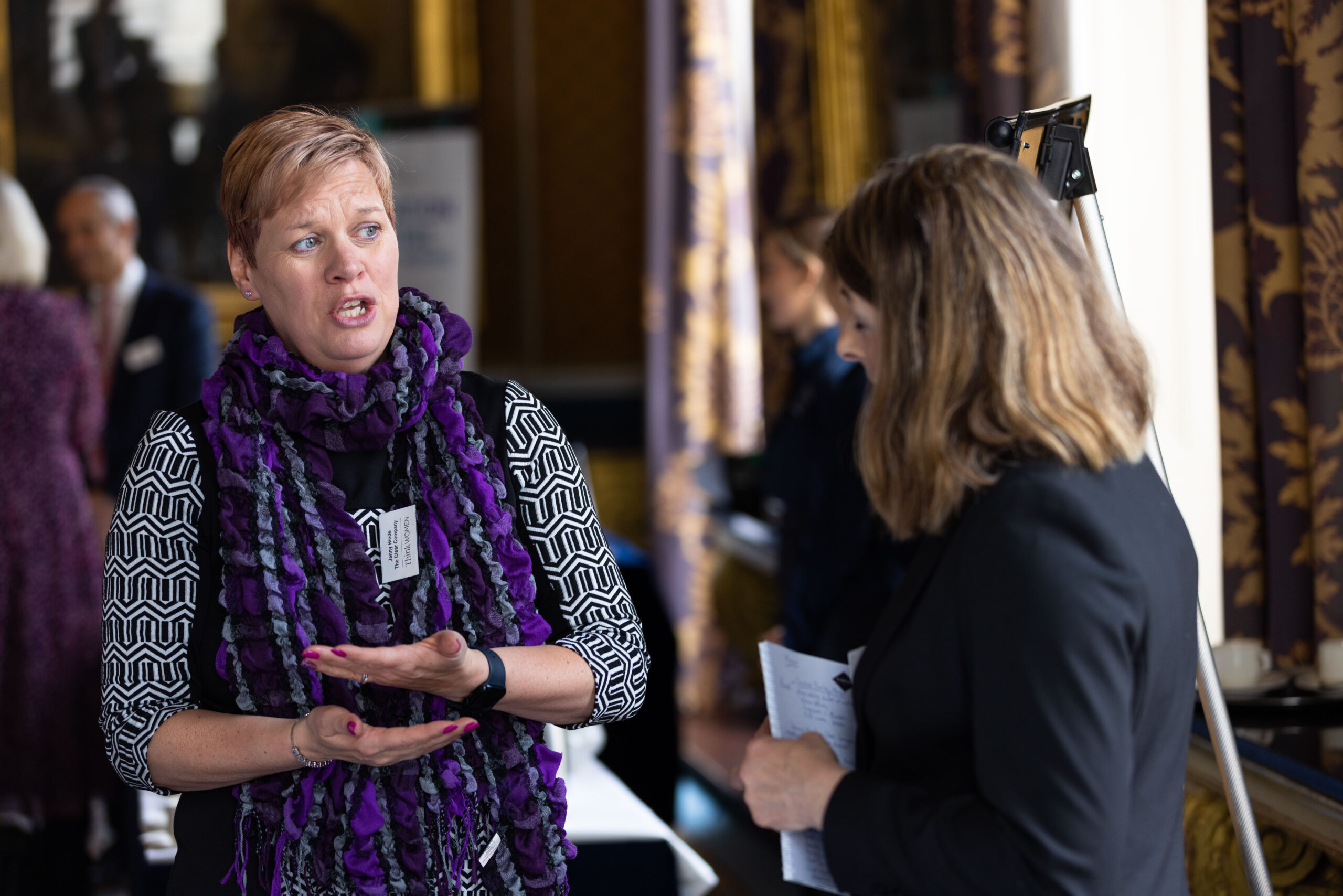
Finding opportunities to work on self-development, and securing a sponsor or a mentor to help you grow in confidence
With so many different voices and experiences among the panellists and guests, the message was that leadership comes in many different flavours, and that women should not discount themselves as leaders just because their style is different.
Julia Palmer, COO Relocation & CHRO at Santa Fe Relocation, said any person can be a leader and people should not be put off by some of the stereotypes that they see.
“Have the confidence to be authentic in yourself,” she said, commenting on how experiences as a child moving around the world had helped her build personal resilience, develop flexibility, and enhanced her ability to collaboration with teams.
“So often we have the perception that to be a leader, you need to be a driver. I am not a driver by any means, and I’m absolutely a collective collaborator. That may be a female trait and I think a lot of what we need to do is change the perception about what leadership actually needs to be.”
In telling her story to the audience, Julia described how she had three “career defining” moments, despite not seeing herself as a natural risk taker, but that each one had accelerated her career in a different way.
From joining EY in Australia, moving to the UK which meant her husband leaving his job and the family leaving behind elderly parents, and then joining Santa Fe Relocation, each step had been beneficial in career terms.
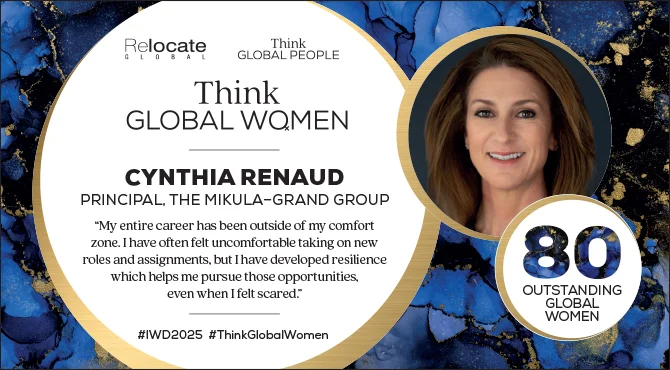
Think Women’s 80 Outstanding Global Women 2025 | Cynthia Renaud
Think WomenCynthia Renaud | 80 Outstanding Global Women 2025Cynthia Renaud has risen to the very top of her profession through grit, determination, hard work. She has embraced the opportunities that arose and juggled police work in the 44th most populous city in...
The kindness of mentoring is a powerful motivation
Gina Lodge, CEO, World View, and an expert mentor and coach, had a varied early career working with Shell International and described how she benefited from being mentored by some great leaders.
“I learned a lot in my first career,” she said. “I had a lot of support from people who mentored me, which I didn’t actually realise at the time because it wasn’t labelled as mentoring. Coaching wasn’t really on the scene, but I was inspired and helped and that really made me more interested in leadership. It was the kindness, the fact that they gave their time without asking, and they introduced me to different people and different types of meetings, so I gained more experience.
“It’s only looking back now that I see how valuable that was. The support of people mentoring and looking out for the next generation of people is incredibly important.”
Jonathan Meek, Senior Human Resources Manager at Celeros Flow Technology, an engineering organisation which employs 1,600 people globally, said the event had been valuable in hearing ideas which could be put into practice.
“It is about learning how we can enhance our organisation when it comes to accelerating progression for women in the workplace, and really taking the themes of embracing equity from International Women’s Day and looking to see how we can apply them on a day to day basis,” he said.
“It’s been great to hear the real thoughts and ideas around the tables that people have been able to put into practice. There’s been some real progress and people are talking about similar themes.
“In terms of getting more women into senior leadership roles, it needs focus from board level, which we’ve certainly now in terms of getting those people that are interested in progressing moving through the organisation. The next piece that we’ve been really engaging in and I’d like to take further is our mentorship programmes. We’ve been getting really good mentorship programmes in place across our business, and it makes a huge difference in terms of progressing women with the organisation.”
He said gender equity was good for business and contributed to an organisation’s success.
“It is the right thing to do in terms of the values of our organisation, but also in the values of the worlds that we work in and the communities that we engage in. It’s also right for business because it brings different ideas to the table in terms of people can think about things being done in different ways and achieve business outcomes through different ways of engaging,” he said.
Women ready to lead the younger generations
Claudine Hakim, Head of Advancement, Transitions and Student Support at the International School of London, summed up the inspirational and positive mood of the day.
“The challenges that our panellists here today have faced but overcome is inspiring and gives me the chance to think about what could I do for myself, and in the world of education, how we could be models to other generations of young women. We need to tell them that the world is their oyster, and there shouldn’t be any limits or barriers for them to achieve whatever they set out to achieve.”
Ellen Shustik, head of programmes and external relations for Inner Wings, a charitable foundation to encourage confidence in young children, said she had enjoyed meeting a vibrant community of men and women.
“I am a global woman who has lived and worked all over the world and it has been great to meet other women who understand those experiences, the challenges they bring, but also the positives. My key takeaway is how important it is to have a global perspective and how we can get that from living and working abroad. It makes us more open minded. less judgmental, more caring, more compassionate, more empathetic. It also gives you confidence and resilience, which are phenomenal skills to have in every aspect of your life, including your career.”
Esther Clark, Executive Director of Marketing Online Schools, said one of the main messages that came through was to take risks.
“We have heard stories from some amazing women today about going out and taking risks, which implies a need for more confidence and confidence building in younger women as a way for us to move forward.
“The wonderful opportunity of an event like Think Women is being able to connect ideas, passion, action, people and projects,” she said. “Events like this enable you to have these conversations that can create a spark, ignite action and change, and highlight great ideas that you can implement into your own business and your own sector.
“It is important to think about an education that’s international, and that fosters an international mindset. We also need to ensure that we encourage all sorts of different voices when we make decisions, whether they’re at the board level, at the executive level and management level and across the entire organisation.”
ENJOY HIGHLIGHTS FROM our THINK WOMEN EVENT
Hear from our Keynote, Speaker and Panellists from the day as they talk about how to move the dial and accelerate growth for women, particularly in international leadership roles.
Our Speaker – Julia Palmer, COO of Relo at Santa Fe Relocation talks about the additional pressure on women when taking overseas assignments.
“Realising that female assignees are still expected to do a lot of the moving—and having the help and support to do this is crucial”
Julia Palmer, Santa Fe Relocation
Our panel focused on how to help leaders to embrace DEI strategies
Caroline Thorely – Farrer, Group Global Mobility Director, Worley
Salma Shah, Founder of Mastering Your Power Coach Training and author.
Jenny Hinde, Director at The Clear Company
“In order to tackle DEI, you need to do it with authenticity”
Jenny Hinde
Our Keynote — Dr Anino Emuwa, Managing Director of Avandis Consulting talked about the power of communication, community and putting yourself out there.
“Let people know what is your expertise and how you are adding value”
Dr Anino Emuwa


